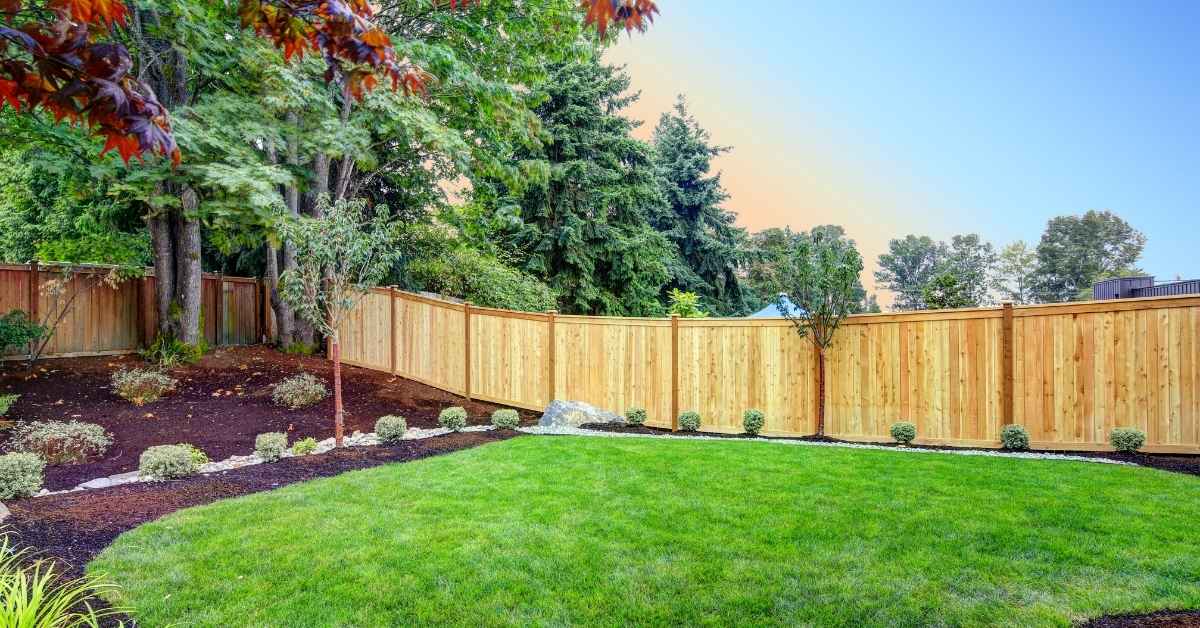Installing a fence around the perimeter of your property can make your yard more secure, give you some privacy, and increase your home's curb appeal. If you're in the market for a fence, there are some things to think about to help you decide which fence materials and style will be best for you.
Why Do You Want a Fence?
The first question to ask yourself is why do you want a fence? Your fence can accomplish multiple tasks, but your reasons for installing it will influence its style and the materials you choose.
For example, if privacy is a concern, and you don't want people looking into your yard, you'll want to look at fences with pickets that are placed close together. Known as privacy fences, they are typically made from wood or vinyl and have panels that are solid. The height of the fence can also contribute to your privacy. A six-foot-tall fence offers more privacy than a four or five-foot fence.
Or, you might be less concerned with privacy and more concerned with aesthetics when it comes to your home's fence. A white or beige fence, with the pickets spaced slightly apart, can create a classic look around your home. Or, if you want to give your property an elegant, stately feel, you might opt for a decorative aluminum fence.
Also consider the behavior of the people or pets who play in your yard. A small child or dog can slip through pickets that are spaced far apart. A dog who jumps might easily scale a four-foot fence. Dogs who dig can slip under fences that aren't pushed deep enough into the ground. Take note of these types of concerns and be sure to discuss them during your consultation so your fencing pro can make recommendations to meet these needs.
Your Budget for a Fence
A fence can give your property's value a considerable boost. That said, you might be working with a limited budget when it comes to purchasing and installing the new fence. How much you can afford to spend influences the style, material, and size of the fence you purchase.
According to HomeAdvisor, the average price for a fence installation ranges from just over $1,600 to more than $4,135. Fence materials have a considerable impact on the cost of the project. Generally, wood or vinyl fences cost less than aluminum fences, and taller fences typically cost more than shorter ones.
Another factor that can affect the price of your fence is if you are starting from scratch or replacing an older fence. If you are replacing a fence, you might have to pay the fencing professional for the removal of the original materials.
HOA & Municipality Requirements
It's also important to find out if you can have a fence around your property. Some homeowners' associations (HOA) prohibit owners from installing fences. Or, if the HOA allows a fence, there might be very strict requirements. For example, your fence might have to be a certain height or made of particular materials. Your HOA might ban wood fences but allow aluminum ones, for instance.
Your municipality might have rules about installing fences around swimming pools or other fixtures. Additionally, you might be required to get a permit before any work begins. Finding out what you can and can't do, and what's expected of you, will help you avoid headaches once your fence project gets underway.
Your HOA or municipality might also have rules about the direction your fence faces. Usually, you'll need to put the "good" side of the fence facing outward, toward your neighbor's property or the street. Additionally, there might be regulations about the position of your fence. For example, your HOA or municipality might require the fence to be a certain number of inches or feet away from the street or sidewalk.
[In-line CTA] If you’re in the Indianapolis area, HOA Affordable Fence Company can help you navigate the requirements of your HOA or municipality.
Care Requirements of Different Fence Materials
A professionally installed fence should last you many years, whether it's made from wood, vinyl, or metal. Most fencing materials are relatively easy to care for and don't require much annual maintenance to continue to look good and function well.
It's still worthwhile to familiarize yourself with the care requirements of the fence material you choose. For example, a wood fence might need to be sealed annually. Vinyl fences typically need to be cleaned from time to time to remove algae growth or dirt. Aluminum fences are typically rust-proof, but might need to be cleaned occasionally.
Think about how much time you have to devote to the care of your fence. Do you see yourself sealing or staining the wood every year? Are you looking for an option that's as hands-off as possible?
HOA Affordable Fence Company can work with you to help you choose a fence that's just right for your property. We work with homeowners in the Greater Indianapolis area. To learn more, contact us today.


